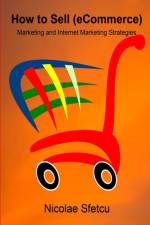av Nicolae Sfetcu
345,-
Plato drew on the philosophical work of some of his predecessors, especially Socrates, but also Parmenides, Heraclitus, and Pythagoras, to develop his own philosophy, which explores most important fields, including metaphysics, ethics, aesthetics, and politics. With his professor Socrates and his student Aristotle, he laid the foundations of Western philosophical thought. Plato is considered one of the most important and influential philosophers in human history, being one of the founders of Western religion and spirituality. The philosophy he developed, known as Platonism, is based on the theory of Forms known by pure reason as a solution to the problem of universals. Plato's philosophy is in line with the pre-Socratics, sophists and artistic traditions that underlie Greek education, in a new framework, defined by dialectics and the theory of Ideas. For Plato, knowledge is an activity of the soul, affected by sensible objects, and by internal processes.In The Republic of Plato, the highest form is considered to be the Form of Good, the source of all other Forms that could be known by reason. The central theme of the book is justice, argued with the help of several Platonic theories, including the allegorical myth of the cave, the doctrine of ideas, dialectics, the theory of the soul, and the design of an ideal city.His dialectic is a type of knowledge, with an ontological and metaphysical role, which is reached by confronting several positions to overcome opinion (doxa), a shift from the world of appearances (or "sensible") to intellectual knowledge (or " intelligible ") to the first principles.Plato's educational model (paidèia) differentiates the level of education according to the students' skills. According to Socratic principles, in order to do justice, one must know what is good, and this is best known to the philosopher.




